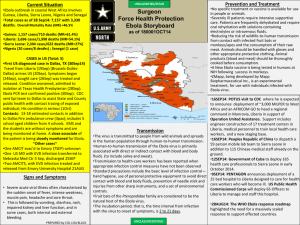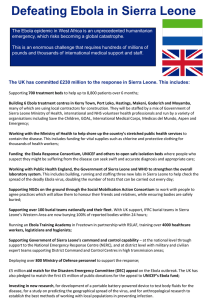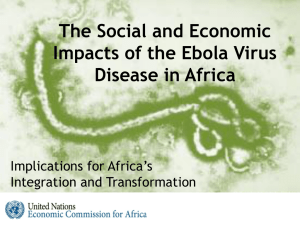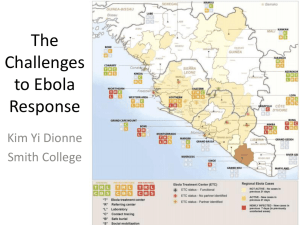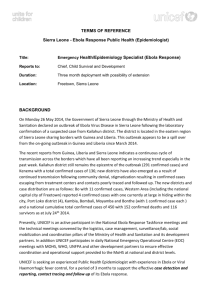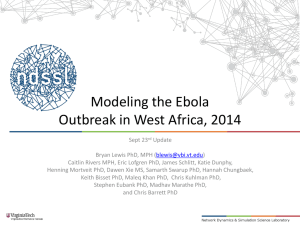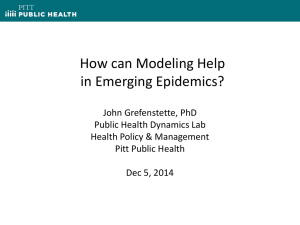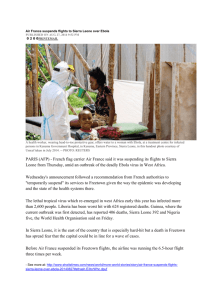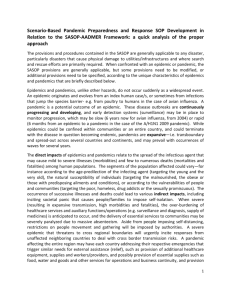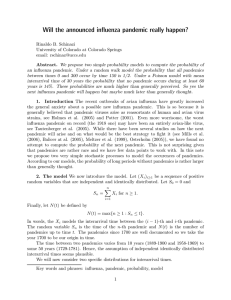Report - egmun
advertisement
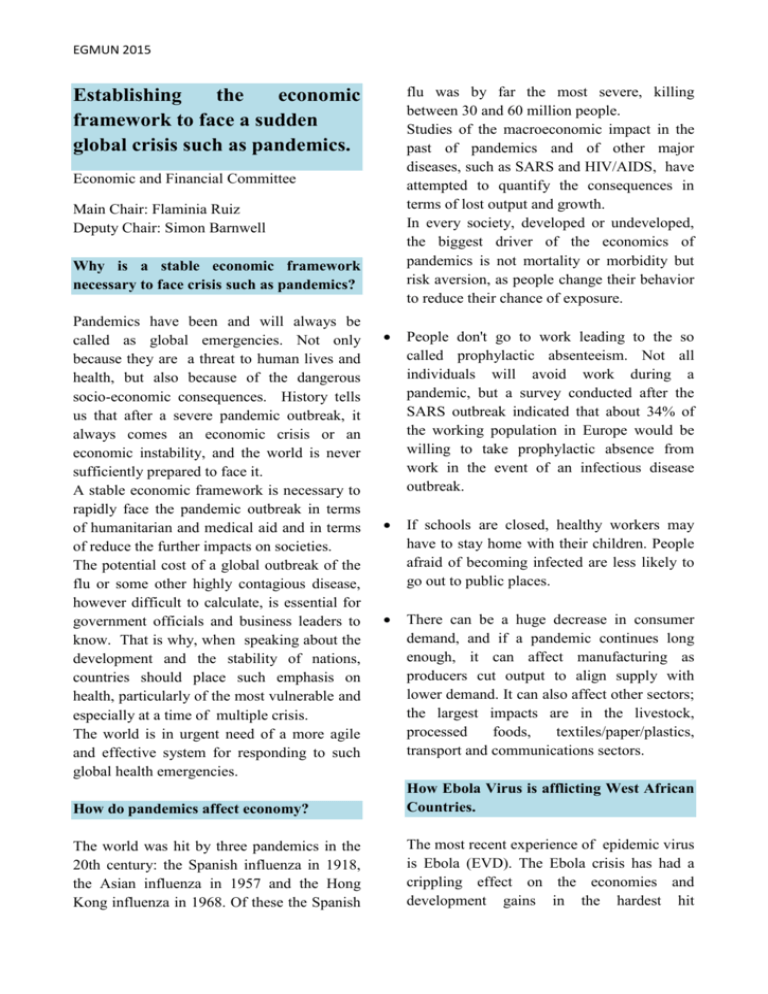
EGMUN 2015 flu was by far the most severe, killing between 30 and 60 million people. Studies of the macroeconomic impact in the past of pandemics and of other major diseases, such as SARS and HIV/AIDS, have attempted to quantify the consequences in terms of lost output and growth. In every society, developed or undeveloped, the biggest driver of the economics of pandemics is not mortality or morbidity but risk aversion, as people change their behavior to reduce their chance of exposure. Establishing the economic framework to face a sudden global crisis such as pandemics. Economic and Financial Committee Main Chair: Flaminia Ruiz Deputy Chair: Simon Barnwell Why is a stable economic framework necessary to face crisis such as pandemics? Pandemics have been and will always be called as global emergencies. Not only because they are a threat to human lives and health, but also because of the dangerous socio-economic consequences. History tells us that after a severe pandemic outbreak, it always comes an economic crisis or an economic instability, and the world is never sufficiently prepared to face it. A stable economic framework is necessary to rapidly face the pandemic outbreak in terms of humanitarian and medical aid and in terms of reduce the further impacts on societies. The potential cost of a global outbreak of the flu or some other highly contagious disease, however difficult to calculate, is essential for government officials and business leaders to know. That is why, when speaking about the development and the stability of nations, countries should place such emphasis on health, particularly of the most vulnerable and especially at a time of multiple crisis. The world is in urgent need of a more agile and effective system for responding to such global health emergencies. People don't go to work leading to the so called prophylactic absenteeism. Not all individuals will avoid work during a pandemic, but a survey conducted after the SARS outbreak indicated that about 34% of the working population in Europe would be willing to take prophylactic absence from work in the event of an infectious disease outbreak. If schools are closed, healthy workers may have to stay home with their children. People afraid of becoming infected are less likely to go out to public places. There can be a huge decrease in consumer demand, and if a pandemic continues long enough, it can affect manufacturing as producers cut output to align supply with lower demand. It can also affect other sectors; the largest impacts are in the livestock, processed foods, textiles/paper/plastics, transport and communications sectors. How do pandemics affect economy? How Ebola Virus is afflicting West African Countries. The world was hit by three pandemics in the 20th century: the Spanish influenza in 1918, the Asian influenza in 1957 and the Hong Kong influenza in 1968. Of these the Spanish The most recent experience of epidemic virus is Ebola (EVD). The Ebola crisis has had a crippling effect on the economies and development gains in the hardest hit EGMUN 2015 countries: Guinea, Liberia and Sierra Leone. United Nations estimate that the actual loss in GDP for the low Ebola scenario is highest in Sierra Leone (US$219 million), followed by Liberia (US$188 million) and Guinea (US$184 million); for the high scenario, it ranges from US$315 million (Guinea) to US$245 million (Liberia), while Sierra Leone could lose as much as an annual average of around 7.1 percent between 2014 and 2017. management system in order that it will be able to cope with such pandemics when they occur. Current partnerships with research institutions and pharmaceutical companies should be translated into strategic actions that will lead to the invention of the requisite vaccine for the disease within a very short time. “Socio-economic of Ebola in West Africa” UNDP, March 2015 The Loss in GDP in a such large amount, has having negative implication on jobs livelihoods and household’s survival. There are many other social factors making the EVD difficult to eradicate such as the lack of resources to contain the epidemic (drugs, medical facilities, ambulances, trained personnel), the impoverishment of rural areas, the protracted civil wars in Liberia and Sierra Leone, the inequitable distribution of human capital resources, the rapid migration towards other countries, the weakness of national and regional security All of these factors have lead the population of West African countries to an higher rate of poverty and food insecurity, becoming more vulnerable. The World is unprepared to pandemics outbreaks. The UNDP (United Nations Development Programme) has conduct studies on how the global health system was unprepared to face the recent Ebola pandemic and how it is still unprepared. The global health governance structures are inadequate, the international commitment to bolster pandemic preparedness and response capacity in poor countries is tardy, and the global support for strengthening health systems is still weak. This, therefore, points to the urgent need to reform the global health Read More www.worldbank.org www.imf.org www.undp.org www.theconomist.com

